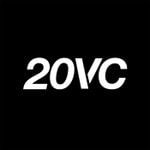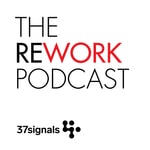Venture Unlocked: The playbook for venture capital managers – Details, episodes & analysis
Podcast details
Technical and general information from the podcast's RSS feed.

Venture Unlocked: The playbook for venture capital managers
Samir Kaji
Frequency: 1 episode/10d. Total Eps: 149

ventureunlocked.substack.com
Recent rankings
Latest chart positions across Apple Podcasts and Spotify rankings.
Apple Podcasts
🇫🇷 France - investing
03/06/2025#92🇫🇷 France - investing
24/12/2024#89🇫🇷 France - investing
22/09/2024#81
Spotify
No recent rankings available
Shared links between episodes and podcasts
Links found in episode descriptions and other podcasts that share them.
See all- https://www.fanduel.com/
23704 shares
- https://buffer.com/
166 shares
- https://www.ycombinator.com/
165 shares
- https://twitter.com/DavidSacks
423 shares
- https://twitter.com/Samirkaji
379 shares
- https://twitter.com/mattybcohen
231 shares
RSS feed quality and score
Technical evaluation of the podcast's RSS feed quality and structure.
See allScore global : 53%
Publication history
Monthly episode publishing history over the past years.
Building a firm to last, lessons from nearly three decades of investing, and the path to hiring great venture teams with Glenn Solomon of Notable Capital (FKA GGV Capital)
mercredi 28 août 2024 • Duration 40:51
Follow me @samirkaji for my thoughts on the venture market, with a focus on the continued evolution of the VC landscape.
Today we're thrilled to be joined by Glenn Solomon, managing partner at Notable Capital. Along with Granite Asia, Notable Capital was one of two groups to emerge from GGV Capital, which recently split into two groups with Notable based in Silicon Valley, New York, and covering companies in the U. S., Israel, Europe, and Latin America.
Glenn brings nearly 30 years of venture experience to the table, and it was great to draw from his insights in investing, building firms, and working with high performing teams.
About Glenn Solomon:Glenn Solomon is the Managing Partner at Notable Capital. He focuses on investing in early to growth-stage companies across different sectors, including cloud infrastructure and business applications. He also serves on the boards of several companies, such as HashiCorp, Opendoor.com, and Orca Security.
Before joining Notable, Glenn was a General Partner at Partech International from 1997 to 2006, where he worked on technology investments. Earlier in his career, he was an associate at SPO Partners from 1993 to 1995 and started as a financial analyst at Goldman Sachs from 1991 to 1993.
Glenn Solomon earned his MBA and BA from Stanford University.
In this episode, we discuss:
(01:42) Glenn’s journey from playing tennis at Stanford to discovering a passion for technology and investing
(02:44) A pivotal moment when encountering the internet for the first time, which sparked a deeper interest in technology
(04:06) The transition from Partech International to joining Granite Global Ventures in the mid-2000s
(05:03) The appeal of GGV's global perspective and innovative approach in venture capital
(07:48) The early strategy at GGV, focusing on differentiation in the venture space
(09:01) The necessity of adapting to the evolving nature of the industry
(10:29) The rebranding to Notable Capital and the strategic decisions following the split from GGV’s Asia team
(12:39) The guiding principles at Notable Capital, emphasizing the importance of speed and maintaining a sector-focused strategy
(15:19) An example of a recent deal showcasing how the firm’s flat structure empowers all team members to contribute significantly
(17:33) Staying focused on specific sectors and building a strong support platform for portfolio companies
(23:25) Engaging with CSOs and CDOs to maintain an edge in cybersecurity and data sectors.
(27:00) Discusses the importance of resourcefulness in venture capital and how they assess this quality during interviews.
(36:31) Advice on being a successful VC, stressing the critical role of building strong, lasting relationships
(39:30) Success in venture capital fundamentally relies on working with exceptional people
I’d love to know what you took away from this conversation with Glenn. Follow me @SamirKaji and give me your insights and questions with the hashtag #ventureunlocked. If you’d like to be considered as a guest or have someone you’d like to hear from (GP or LP), drop me a direct message on Twitter.
Podcast Production support provided by Agent Bee
This is a public episode. If you would like to discuss this with other subscribers or get access to bonus episodes, visit ventureunlocked.substack.com
Doing a successful GP led secondary in Venture Capital, Why seed funds can scale, and what a good VC platform team looks like
jeudi 8 août 2024 • Duration 52:18
Follow me @samirkaji for my thoughts on the venture market, with a focus on the continued evolution of the VC landscape.
In this episode, we are thrilled to be joined by Ben Sun, co-founder of Primary, a seed-stage fund based in New York. Ben shares his journey from investment banking to startup founder, and eventually to co-founding Primary, which has backed companies like Coupang and Jet.
Ben provides deep insights into venture math and the intricacies of completing a GP-led secondary. He discusses his background and the inspiration behind starting Primary in 2015. Ben talks about the challenges he faced as a founder and the importance of truly understanding the business as a VC. He explains Primary's hands-on approach, emphasizing the need for a high seed-to-A graduation rate and how their impact team supports portfolio companies.
The conversation covers the metrics used to measure success and the importance of waiting for the right investment opportunities. Ben explores the changing landscape of venture capital, strategies for finding alpha and generating returns, and the importance of sector specialization and deep sector expertise. He also touches on deal flow challenges at the seed stage and the role of incubations in lowering the cost basis.
So many great nuggets in this episode, enjoy!
About Ben Sun:Ben is a Co-Founder and General Partner at Primary. Forbes' Midas List ranks him as one of the top 100 tech investors in the world. His founder-first approach originates from having been one: His experiences cofounding Community Connect, one of the first social networking companies, and LaunchTime, an incubator, inform how he supports founders in the portfolio.
Ben focuses his investing activities on primarily consumer-facing companies. Ben has been active in the NYC tech community for over 20 years. Prior to becoming an entrepreneur and investor, Ben worked at Merrill Lynch in the Technology Investment Banking Group, but he really began his career at the age of eight when he worked in his parents’ Chinese restaurant.
In this episode, we discuss:
(01:21) Journey from investment banking to founding Primary Ventures.
(03:45) Starting Primary Ventures and focusing on seed-stage investments in New York.
(04:12) Emphasis on being hands-on and aligning with founders.
(06:34) Roles and functions of the impact team at Primary Ventures.
(10:00) Measuring success through surveys and key performance indicators
(13:23) The importance of choosing the right investment opportunities and achieving high graduation rates from seed to series A
(22:00) How partners wait for the right pitch using an internal rubric
(26:57) Benefits of sector specialization, with a focus on fintech expertise
(35:00) Strategies for maintaining a low-cost basis and navigating market fluctuations, including secondary sales
(41:00) GP-led secondaries and benefits of providing liquidity to limited partners
(49:00) Advice for new venture capitalists: support founders and develop a long-term strategy
I’d love to know what you took away from this conversation with Lindel. Follow me @SamirKaji and give me your insights and questions with the hashtag #ventureunlocked. If you’d like to be considered as a guest or have someone you’d like to hear from (GP or LP), drop me a direct message on Twitter.
Podcast Production support provided by Agent Bee
This is a public episode. If you would like to discuss this with other subscribers or get access to bonus episodes, visit ventureunlocked.substack.com
The Craft of Venture Capital with David Sacks
mercredi 27 mars 2024 • Duration 55:44
Follow me @samirkaji for my thoughts on the venture market, with a focus on the continued evolution of the VC landscape.
We are thrilled to bring you a conversation with David Sacks, Founder and Partner of Craft Ventures. Based in San Francisco, Craft was founded in 2017 and currently has over 3 billion in assets under management.
Across the last three decades, David has been incredibly influential as an investor, entrepreneur, and public thought leader. When starting Craft, he was able to draw from his deep operating background, having worked as an early leader at PayPal, and then later founding Yammer, which he sold to Microsoft for $1.2 Billion.
He is also one of the hosts of the All In Podcast, one of the most listened podcasts in the world.
We had a wide-ranging dialogue that took us through the evolution of Craft Ventures from its initial days to today, the strategic decision-making behind scaling fund sizes and team growth, and his overall views on the current outlook of venture capital.
If you’re a VC investor, then I’m sure you already know about Sydecar, the go-to platform for emerging VCs to manage their SPVs and funds. Sydecar is on a mission to make private markets more accessible, transparent, and liquid by standardizing how investment vehicles are created and executed. Their powerful software allows VCs to launch SPVs and funds instantaneously, track funding in real time, and offer hassle-free opportunities for early liquidity.
Whether you’re syndicating your first or fiftieth deal, Sydecar acts as your silent operating partner, handling all back-office functions in a single place. Sydecar always has your back, so that you never have to worry about chasing subscription docs, lost wires, or late K-1s.
With all the recent ups and downs in the private markets, the last thing you want to worry about is whether your back office is operating smoothly. Sydecar's responsive and proactive customer support team is there to assist, helping you build trust with your investors and tackle the challenges of building your firm.
Visit sydecar.io/ventureunlocked to learn more.
About David Sacks:David Sacks is Co-Founder and Partner at Craft. He has been a successful founder and investor for over two decades, building and investing in some of the most iconic companies in tech. David has invested in over 20 unicorns, including Affirm, AirBnB, Bird, ClickUp, Eventbrite, Facebook, Houzz, Lyft, OpenDoor, Palantir, Postmates, Reddit, Slack, SpaceX, Twitter, Uber, and Wish.David first got involved in the technology industry in 1999 when he joined early-stage startup Confinity, later renamed PayPal. Serving as the company’s first product leader and then as COO, David built and ran many of the company’s key teams, including product management and design, sales and marketing, business development, international, customer service, fraud operations, and HR. He pivoted the product from beaming money on Palm Pilots to emailing money on the web, and introduced the business model. When the company IPO’d on the Nasdaq in 2002, David was 29 — the median age of the “PayPal Mafia” executives listed on the S-1. PayPal was later acquired by eBay and eventually spun back out into a publicly traded company (under ticker symbol PYPL).David is well-known in Silicon Valley for his product acumen. AngelList’s Naval Ravikant has called David “the world’s best product strategist.” And has received acclaim as one of the Besties on the All In Podcast.
In this episode, we discuss:
(02:56) David Sacks discusses transitioning from being an entrepreneur with experiences at PayPal and Yammer to founding Craft Ventures, emphasizing the focus on SaaS and leveraging operational expertise to support startups.
(04:56) The growth of Craft Ventures from its initial fund to managing $3.5 billion, focusing on SaaS and marketplaces, and how fund size affects strategy
(08:15) Portfolio construction and the strategic shift towards reserving more for follow-ons to maintain company ownership and align fund size with venture focus
(10:10) The VC market's evolution shifting towards sustainable investment strategies following the 2020-2021 bubble and its correction.
(13:39) Advice for entrepreneurs to focus on capital efficiency and realistic growth expectations due to the changing investment landscape
(17:33) Predicting a continued reset in valuations and funding availability in 2024, and how startups can adjust their strategies accordingly
(34:05) Parallels and distinctions between running a venture firm and a startup, emphasizing the importance of creating a stable, transparent environment at Craft Ventures
(36:10) The significance of firm culture and talent acquisition, focusing on collective success and providing transparent, valuable support to portfolio companies
I’d love to know what you took away from this conversation with David. Follow me @SamirKaji and give me your insights and questions with the hashtag #ventureunlocked. If you’d like to be considered as a guest or have someone you’d like to hear from (GP or LP), drop me a direct message on Twitter.
Podcast Production support provided by Agent Bee
This is a public episode. If you would like to discuss this with other subscribers or get access to bonus episodes, visit ventureunlocked.substack.com
Mark Suster of Upfront Ventures on Generational Firm Evolution, Why Fundraising is Like Enterprise Sales, & The State of Venture today
mardi 22 juin 2021 • Duration 48:40
Follow me @samirkaji for my thoughts on the venture market, with a focus on the continued evolution of the VC landscape.
Today we’re excited to bring you my recent conversation with Mark Suster, managing partner at Upfront Ventures, a firm that was founded 25 years ago, originally as GRP partners.
Mark joined the firm in 2007 and became managing partner in 2011 and helped architect the new era of the firm while also actively evangelizing the now robust LA tech ecosystem. Upfront currently has $1.9B AUM and has invested in companies such as Overture, Maker Studios, and Ring.
Prior to joining Upfront, Mark was a two-time operator, including selling the latter to Salesforce.com. He did his BA at UCSD, and got his MBA at the University of Chicago.
This was a fun one and we talked a lot about how they’ve rebranded and evolved as a firm, how raising funds is no different than enterprise sales, and the interesting paradox that faces every VC today.
A message from our sponsor
Frank, Rimerman + Co.’s history is closely intertwined with that of Silicon Valley. With humble beginnings similar to so many start-ups, Frank, Rimerman was formed with a desire to serve the entrepreneurial and venture communities of the Valley and the determination to think outside-the-box.
When it comes to venture funds, we work with almost 500 VC groups from over 20 states across the USA. We have worked with over 350 fund groups throughout their first year, making us one of the leading providers in the country to emerging managers.
No one wants to be bored at work. That’s why we chose to work with some of the most innovative and creative people – people who are changing the world around us every day. Their excitement fuels our passion and determination to grow and serve this special community.
Frank, Rimerman + Co, Passion Works Here.
In this episode we discuss:
01:43 Mark’s journey into VC
04:16 Why he thought GRP was a good fit for him
08:22 How the firm transformed its investment focus
12:55 The process around the rebranding to Upfront Ventures
18:23 Human psychology of decisions
23:41 Why you need to be careful on when to share data rooms
27:41 How fundraising is like sales
33:05 Why creating scarcity is important
34:57 Talent retention and acquisition
42:26 The current state of the venture market
Mentioned in this episode:
* The Righteous Mind: Why Good People Are Divided by Politics and Religion
* Why You Should Never Have A Data Room
We’d love to know what you took away from this conversation with Mark! Follow @SamirKaji and give your insight and questions using the hashtag #ventureunlocked. If you’d like to be considered as a guest or have someone you’d like to hear from (GP or LP), drop a direct message on Twitter.
Podcast Production support provided by Agent Bee Agency
This is a public episode. If you would like to discuss this with other subscribers or get access to bonus episodes, visit ventureunlocked.substack.com
Satya Patel of Homebrew on how they were able to raise their first fund in 100 days, creating enduring partnerships, and the art of fund sizing.
mardi 15 juin 2021 • Duration 37:42
On this week’s show, we’re excited to bring you Satya Patel, co-founder of Homebrew, who he started with his partner Hunter Walk in 2013. Today, the firm is widely considered one of the top seed firms in the industry, counting companies such as Chime, Cruise, Eero, and Gusto as portfolio companies.
Satya brings a unique product background to the table as he worked on AdSense in the early days at Google, and later in various product roles at Twitter. He also spent time as an investor at Battery Ventures.
Satya and Hunter are incredibly thoughtful and detailed when they think about firm building, and during our conversation Satya and I discuss the hard conversations that potential partners need to have before starting a partnership, the unconventional way they raised their first fund, how Homebrew thinks about consistency with founder relationships, and fund sizing.
A message from our sponsor
Frank, Rimerman + Co.’s history is closely intertwined with that of Silicon Valley. With humble beginnings similar to so many start-ups, Frank, Rimerman was formed with a desire to serve the entrepreneurial and venture communities of the Valley and the determination to think outside-the-box.
Frank Rimerman works with almost 500 VC groups from over 20 states across the USA with 350 fund groups during their first year of existence, making them one of the leading providers in the country to emerging managers.
Frank, Rimerman + Co, Passion Works Here.
In this episode we discuss the following topics:
01:13 How he and Hunter became friends and decided to work together again
03:12 Personal factors in deciding to start his own firm when there were so many other options for them.
06:50 How he and Hunter sorted through their strengths and weaknesses
09:07 How were able to raise their first fund in 100 days by targeting institutional investors instead of relying on family offices like most Fund 1’s.
12:40 How they used scarcity and a hard close date to drive the process
19:11 The thought process behind moving up weight classes in investing
21:28 Different stages of investment require different skills
24:10 Number of investments vs. bigger ownership in a smaller portfolio
26:38 Interview questions for new hires + how they compensate the team
31:04 Homebrew to announce an effort to systematically further diversify VC
34:45 The best lesson he’s learned
37:08 Best advice for someone starting out in VC
38:29 The investors that has been most helpful to his career
Mentioned In This Episode:
* Homebrew
We’d love to know what you took away from this conversation with Satya! Follow @SamirKaji and give your insight and questions using the hashtag #ventureunlocked. If you’d like to be considered as a guest or have someone you’d like to hear from (GP or LP), drop a direct message on Twitter.
Podcast Production support provided by Agent Bee Agency
This is a public episode. If you would like to discuss this with other subscribers or get access to bonus episodes, visit ventureunlocked.substack.com
Jeff Clavier of Uncork Capital on being one of the earliest seed stage VC's, lessons in fundraising during a downturn, and building a multi-generational firm
mardi 8 juin 2021 • Duration 49:12
We’re thrilled to bring you my recent talk with Jeff Clavier of Uncork Capital, one of the early trailblazers of the emerging manager community.
Jeff started investing in seed full time all the way back in 2004 well before the Micro-VC moniker was even conceived (back then we called them Super Angels). Today the firm is one of the most active seed funds in the market with over $500MM in AUM and having invested in companies such as Poshmark, Fitbit, Eventbrite, and Molekule.
In this episode is a broad conversation covering the history of VC, raising in a downturn, his thoughts on the hardest things about building the firm, and trends that are influencing the future of venture.
A message from our sponsor
Frank, Rimerman + Co.’s history is closely intertwined with that of Silicon Valley. With humble beginnings similar to so many start-ups, Frank, Rimerman was formed with a desire to serve the entrepreneurial and venture communities of the Valley and the determination to think outside-the-box.
Frank Rimerman works with almost 500 VC groups from over 20 states across the USA with 350 fund groups during their first year of existence, making them one of the leading providers in the country to emerging managers.
Frank, Rimerman + Co, Passion Works Here.
In this episode we discuss the following topics:
01:54 Jeff’s start as an investor with $250k of his own capital, and his first investment
03:01 The decision to start a fund with third party capital
06:10 Fundraising in the global financial crisis of 2008
09:01 The strategy shift in fund III and the questions it raised from LPs
12:10 Why Uncork has kept funds smaller thus far
16:45 Thoughts on the service provider model VC’s need to embrace
19:16 Building a multi-generational firm with brand recognition
21:36 How to attract high-quality talent
23:46 The day-to-day challenges of running a firm
25:56 Maintaining culture with remote work
30:56 The future of VC after the pandemic
34:48 The amount of firms and innovation in the market today and what it means
39:24 How the future is so hard to predict
40:38 The best advice he’s gotten as a VC
42:51 His biggest miss and the lesson he learned from it
46:19 The advice he would give to a new manager
Mentioned In This Episode:
We’d love to know what you took away from this conversation with Jeff! Follow @SamirKaji and give your insight and questions using the hashtag #ventureunlocked. If you’d like to be considered as a guest or have someone you’d like to hear from (GP or LP), drop a direct message on Twitter.
Podcast Production support provided by Agent Bee Agency
This is a public episode. If you would like to discuss this with other subscribers or get access to bonus episodes, visit ventureunlocked.substack.com
Nnamdi Okike of 645 Ventures on thoughtfully growing funds, data driven sourcing in venture to reduce bias, and building one of the largest BIPOC led venture firms.
mardi 25 mai 2021 • Duration 45:06
Using data to make better investment decisions is a common theme these days, but Nnamdi Okike, co-founder and managing partner of 645 Ventures, a firm that uses unique, data driven methodologies to improve sourcing while helping to eliminate the biases that often present themselves when assessing new opportunities. Using public data that to accompany their own automated systems, they’ve found an interesting way to consistently find undiscovered founders.
After leaving Insight Ventures, Nnamdi co-founded 645 Ventures in 2013 with Aaron Holiday, starting with a $8MM proof of concept fund. Since then, they raised a $40MM Fund 2, and most recently closed Fund III at $160M making them one of the largest underrepresented led managers in the United States. The fund focuses primarily on seed and series A and has a portfolio that includes companies such as Iterable, Goldbelly, Eden Health and Squire.
Prior to starting his career, Nnamdi got his bachelor’s, JD, and MBA from Harvard.
Our wide ranging conversation covers: considerations when growing fund sizes dramatically, the power of using data driven approach to sourcing, and his lessons as a venture investor over the last decade.
In this episode we discuss the following topics:
01:12 Nnamdi’s journey into venture capital
03:37 The opportunity he saw to start 645
09:20 How and why they raised $8M for their first fund
12:27 Methodology around data that they use to decide on investing
16:32 How 645 Ventures weeds out bias in their methodology
20:58 The evolution of and growth of 645
26:27 Deciding to jumping up weight class in the ecosystem; the value they add
30:31 Using their connected network as a strategic advantage
32:48 The future of data in VC
34:06 His best advice to emerging managers
36:22 His biggest portfolio miss
40:31 What emerging managers should think about as they are starting
Mentioned In This Episode:
* Insight Ventures
We’d love to know what you took away from this conversation with Nnamdi. Follow @SamirKaji and give your insight and questions using the hashtag #ventureunlocked. If you’d like to be considered as a guest or have someone you’d like to hear from (GP or LP), drop a direct message on Twitter.
Podcast Production support provided by Agent Bee Agency
This is a public episode. If you would like to discuss this with other subscribers or get access to bonus episodes, visit ventureunlocked.substack.com
Stephen DeBerry of Bronze VC on social impact investing, GP commits, & the next-gen of underrepresented managers
mercredi 19 mai 2021 • Duration 45:08
I’m extremely excited to bring you this week’s episode of Stephen DeBerry from Bronze investments. In addition to being an experienced investor at previous stops at Kapor Capital, Omidyar, The California Endowment, Stephen also developed the “Eastside” thesis which spoke to the inequities that are often present in eastern communities. He presented this thesis in a now viral TED Talk and was a factor in why Stephen decided to invest in change through Venture Capital at Bronze VC.
Stephen did his undergrad at UCLA and his masters work at Oxford. He is a British Marshall Scholar and Henry Crown Fellow at the Aspen Institute. He was on the Board of the Dalai Lama Foundation and Ebony Magazine and The Root/Washington Post named one of the 100 most powerful African-Americans in the United States.
We had a great conversation on social impact investing, GP commits, and why he feels strongly about helping the next generation of under represented managers.
In this episode we discuss the following topics:
01:25 Stephen’s journey into VC
06:25 How the Eastside thesis came to be
13:00 Why venture capital can solve certain social inequities
17:35 The difficulty he faced in his first fundraise
21:43 Advice to other non-traditional venture managers
29:02 How investing in non-traditional companies affects portfolio construction
33:00 Addressing the structural problems with the VC system
38:15 The problem with anchoring on GP commit as a measure of alignment
Mentioned In This Episode:
We’d love to know what you took away from this conversation with Stephen! Follow @SamirKaji and give your insight and questions using the hashtag #ventureunlocked. If you’d like to be considered as a guest or have someone you’d like to hear from (GP or LP), drop a direct message on Twitter.
Podcast Production support provided by Agent Bee Agency
This is a public episode. If you would like to discuss this with other subscribers or get access to bonus episodes, visit ventureunlocked.substack.com
Sunil Dhaliwal from Amplify Partners on finding overlooked investment opportunities, deal competition, and the future of venture capital
mardi 11 mai 2021 • Duration 46:22
Amplify Partners has quickly become one of the true breakouts from the early emerging manager movement. Led by Sunil Dhaliwal, who started Amplify nearly a decade ago after a 14 year tenure at Battery Ventures, the firm has over $750MM in AUM and has invested in companies such as Datadog and Fastly.
This was a fun wide ranging discussion about the current state of VC and where we think the industry is headed now that there are so many new emerging managers and potential LPS.
Prior to Amplify, Sunil invested in early-stage IT infrastructure companies at Battery and was named to the Forbes Midas List for 2011, which ranks the top 100 venture capitalists around the world. He was also named to the AlwaysOn Top 100 list of VCs and Business Insider’s 15 Most Powerful Venture Capitalists on the East Coast.
In this episode we discuss:
1:37 What he learned at Battery and why start a new firm
06:54 Decisions around Amplify’s fund one raise
10:59 How fund stages and sizes changes competition for deals
16:29 Moving between weight classes and the challenges around that
19:08 Competing at seed stage against large firms
21:26 How both Samir and Sunil underestimated the size of the venture market
22:19 Market forces disrupting early stage venture in 2021
24:24 Why certain things may never go back to the way they were
30:01 How fear will change the VC market
35:45 The luck of timing; downturns are difficult yet provide opportunities
37:19 How LPs look at emerging managers and how to differentiate
40:22 Institutions and retail players bringing new money into early stage funding
Mentioned In This Episode:
We’d love to know what you took away from this conversation with Sunil! Follow @SamirKaji and give your insight and questions using the hashtag #ventureunlocked. If you’d like to be considered as a guest or have someone you’d like to hear from (GP or LP), drop a direct message on Twitter.
Podcast Production support provided by Agent Bee Agency
This is a public episode. If you would like to discuss this with other subscribers or get access to bonus episodes, visit ventureunlocked.substack.com
Pete Flint from NFX on network effects, VC as a platform, and how they think about fund sizes.
mardi 4 mai 2021 • Duration 38:22
Follow me @samirkaji for my ongoing thoughts on the private fund markets.
Over the last decade, we’ve seen a surge of VC firms formed by those that spent their entire lives as entrepreneurs. NFX is one of those firms, and in 2016, ex-Trulia founder Pete Flint joined the firm as fourth partner bringing the experience of starting a company, taking it public, before ultimately being acquired by Zillow for $2.5B.
This was a fun conversation, not only because of Pete’s insights and interesting background, but because of unique NFX is as a firm in the way they have built their firm, using operational experience, a community driven ethos, team composition, and software to help founders. The fund’s portfolio companies include Lyft, AngelList, and Doordash and has nearly $500MM in AUM.
In this episode we discuss the following topics:
01:29 Pete’s journey into venture capital
04:04 Why he chose to go with NFX instead of a more established firm
06:58 Execution vs. Ideas
10:38 The origin of NFX Guild
13:10 How NFX views venture fund differentiation
15:53 The way NFX uses software to help their firm and their portfolio companies
20:02 Scalingvalue as AUM and number of portfolio companies increase
22:24 Portfolio construction and founder engagement
24:32 What drove their increase in fund size
27:33 Where NFX fits in the ecosystem
28:13 Biotechnology and blockchain as a new areas of investment
30:58 The importance of ethos and culture at NFX
32:42 The biggest counter intuitive fact he’s learned as an investor
33:21 His biggest miss an investor
34:35 The main characteristic of a successful investor
Mentioned In This Episode:
* NFX Fund
We’d love to know what you took away from this conversation with Pete! Follow @SamirKaji and give your insight and questions using the hashtag #ventureunlocked. If you’d like to be considered as a guest or have someone you’d like to hear from (GP or LP), drop a direct message on Twitter.
Podcast Production support provided by Agent Bee Agency
This is a public episode. If you would like to discuss this with other subscribers or get access to bonus episodes, visit ventureunlocked.substack.com









